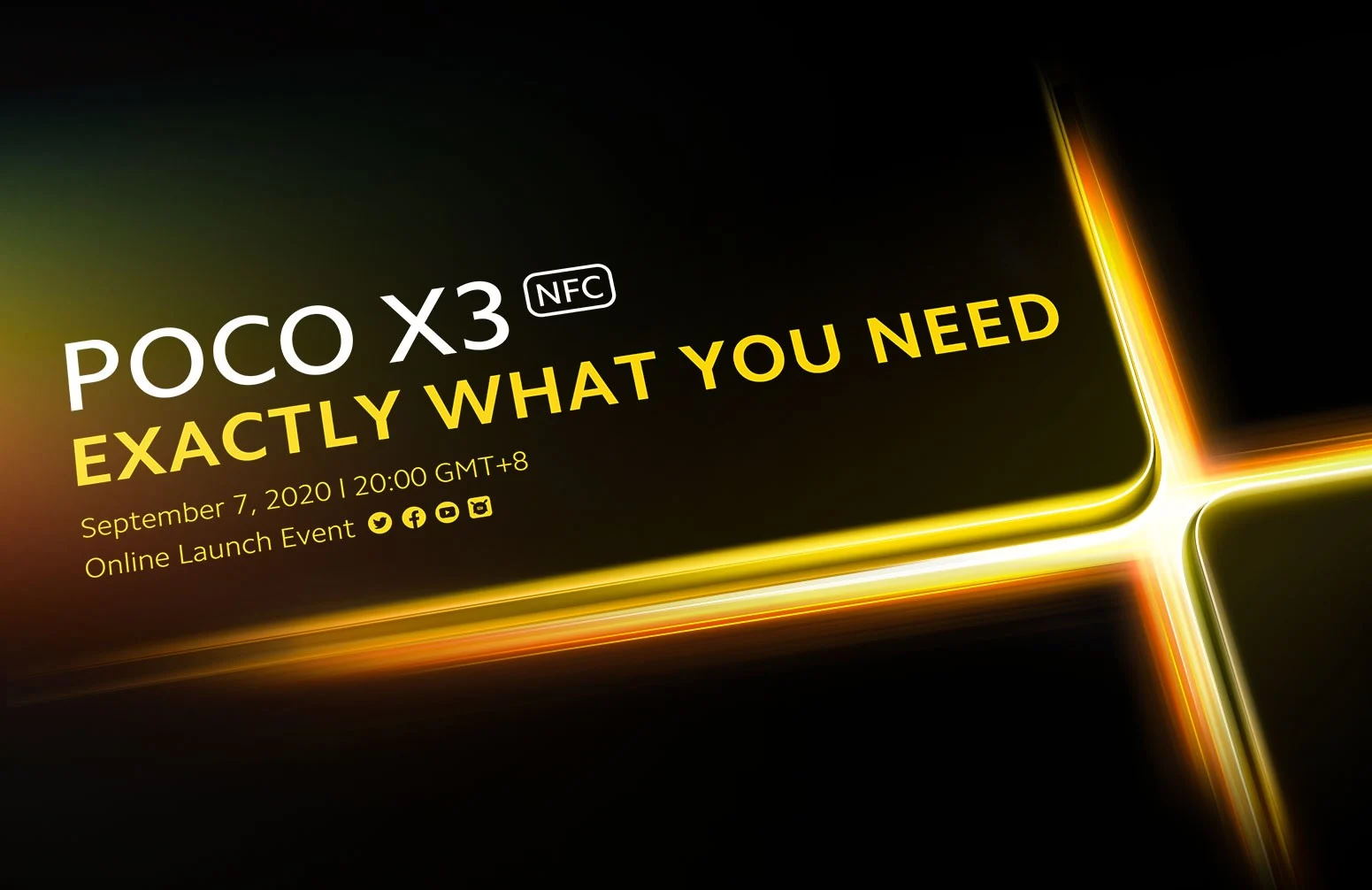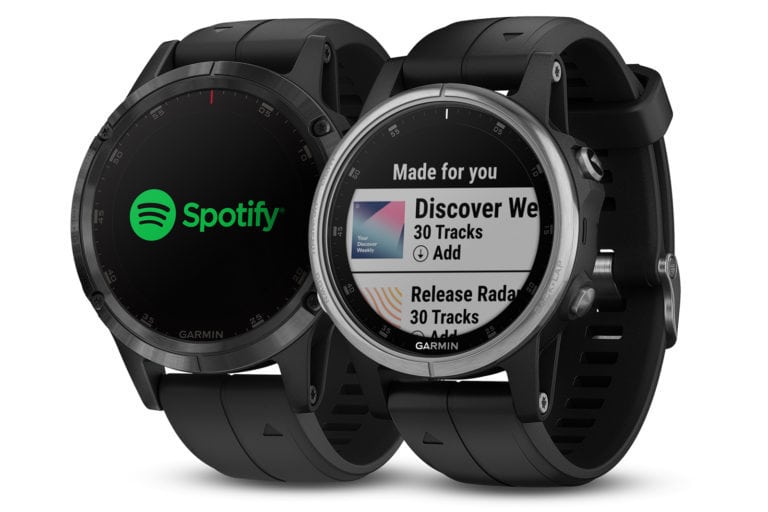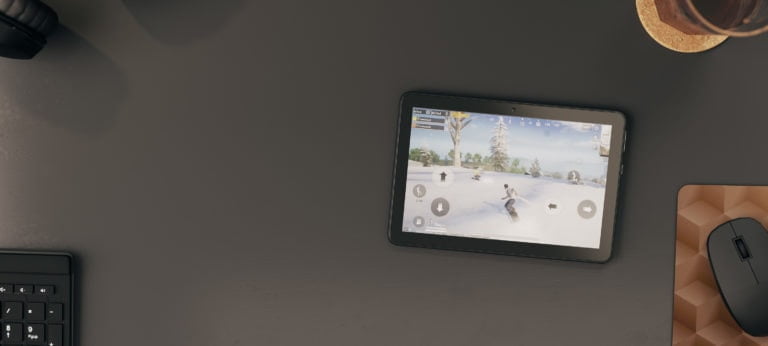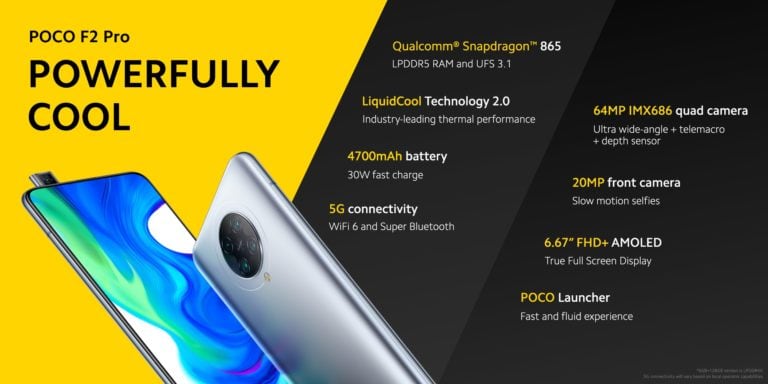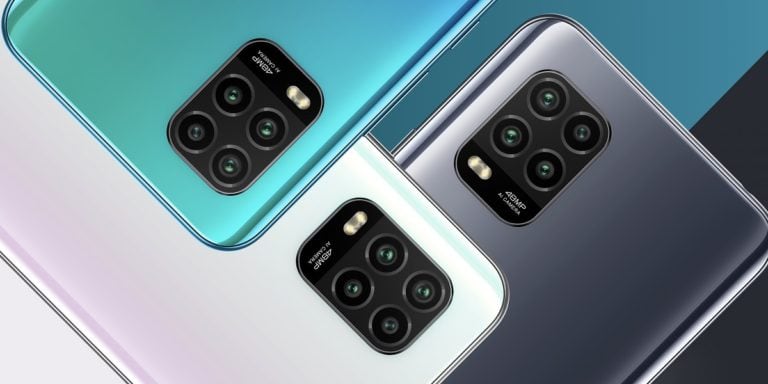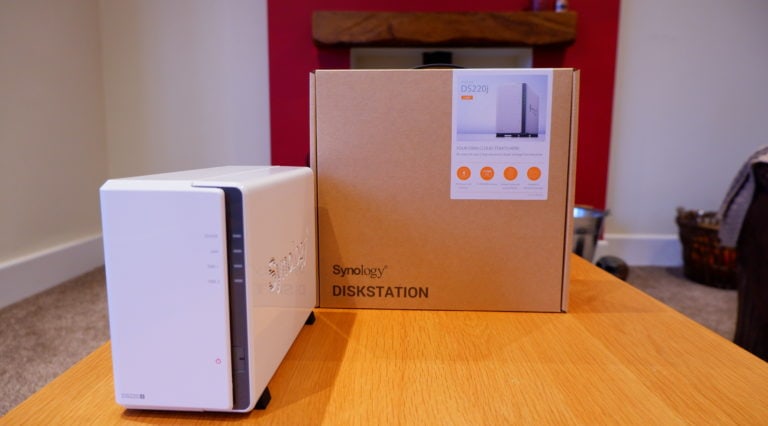Any links to online stores should be assumed to be affiliates. The company or PR agency provides all or most review samples. They have no control over my content, and I provide my honest opinion.
Yesterday, Qualcomm launched their new Qualcomm Snapdragon 732G chipset will feature on the POCO X3 NFC launching on the 7th of September.
I have already compared the specification of this chipset with the 730G it replaces, the SD720G and the Mediatek Helio G90T.
[Update] During the Poco X3 launch they did announce some reasonably impressive numbers for the Antutu benchmarks, however it is still very much an incremental upgrade
Qualcomm Snapdragon 732G vs Snapdragon 720G vs 730G
Qualcomm and most of the press that appears to have been pre-briefed on the chipset appear to have conveniently forgotten the Snapdragon 720G exists, even though this announced in January this year compared to April 2019 for the SD730G.
One likely reason for this, apart from the fact it is confusing, is that the Snapdragon 732G is identical to the SD720G, the CPU has the same frequencies, it is just the GPU that has been improved. However, comparing it against the SD730G they can show improvements for both CPU and GPU.
This has led to a bit of a confusing timeline for the Snapdragon 700-series chipsets. We have
- 2019 – Snapdragon 730G
- Early 2020 – Snapdragon 720G with a slower GPU but faster CPU but most companies marketed it as a better chipset
- Late 2020 – Snapdragon 732G – Matches SD720G CPU but improves the GPU to 18% beyond 730G performance
Anyway, if you want further clarification that the Snapdragon 732G doesn’t offer much in the CPU department over its predecessors, the POCO X3 NFC has been benchmarked in Geekbench 5
Qualcomm Snapdragon 732G vs Snapdragon 720G vs Snapdragon 730G vs Mediatek Helio G90T Geekbench Benchmarks
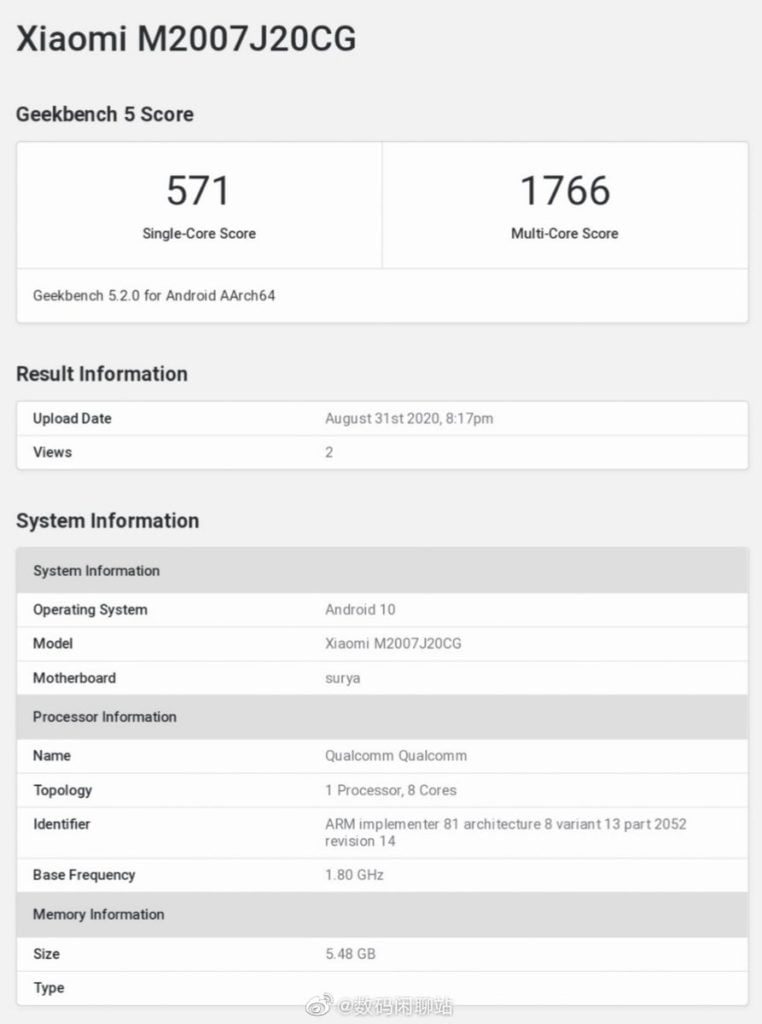
Sadly, performance hasn’t improved a great deal since the launch of the Snapdragon 730G around 20 months ago.
| Single Core | Multi Core | |
|---|---|---|
| POCO X3 NFC - SD732G | 568 | 1771 |
| Realme 6 Pro - SD720G | 568 | 1643 |
| Realme X2 - SD730G | 546 | 1729 |
| Realme 7 - Helio G95 | 516? | 1650? |
| Realme 6 - Helio G90T | 516 | 1650 |
Qualcomm Snapdragon 732G vs Snapdragon 720G vs Snapdragon 730G vs Mediatek Helio G90T Antutu Benchmarks
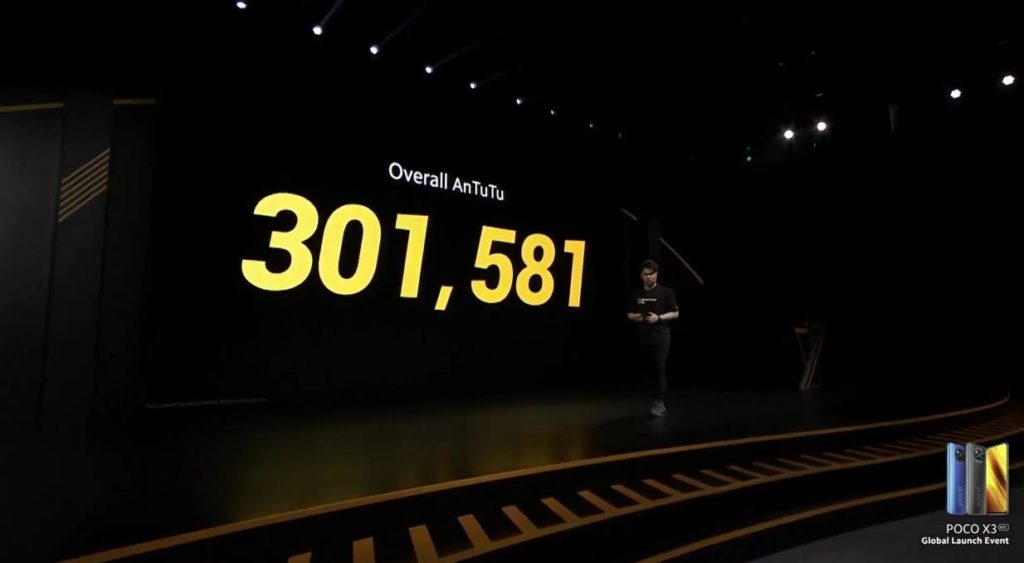
As part of the Poco X3 launch, the presenter confirmed the performance numbers of the Qualcomm Snapdragon 732G. If accurate, the numbers are quite impressive, pushing the SD732G past the performance of the Helio G90T by 3.7% and an improvement of 6.8% vs the Snapdragon 720G on the Realme 6 Pro or 16% on the Realme X2
| Total | CPU | GPU | MEM | UX | |
|---|---|---|---|---|---|
| Realme X50 - SD765G | 323286 | 103663 | 94151 | 68007 | 57462 |
| Poco X3 - SD732G | 301,581 | 103403 | 79234 | ||
| Realme 7 - Helio G95 | 287963 | 97262 | 83992 | 55016 | 51693 |
| Xiaomi Redmi Note 8 Pr- Helio G90T | 281295 | 98263 | 79755 | 57285 | 45992 |
| Realme 6 Pro - SD720G | 282336 | 104143 | 70801 | 52273 | 55119 |
| Realme X2 - SD730G | 258311 | 98328 | 67574 | 47945 | 44464 |
| Realme 5 Pro - SD712 | 216501 | 73459 | 61872 | 42013 | 39157 |
| Realme 6i | 201299 | 73376 | 41633 | 45192 | 41098 |
| Realme 5 SD665 | 167866 | 71157 | 33489 | 36568 | 26652 |
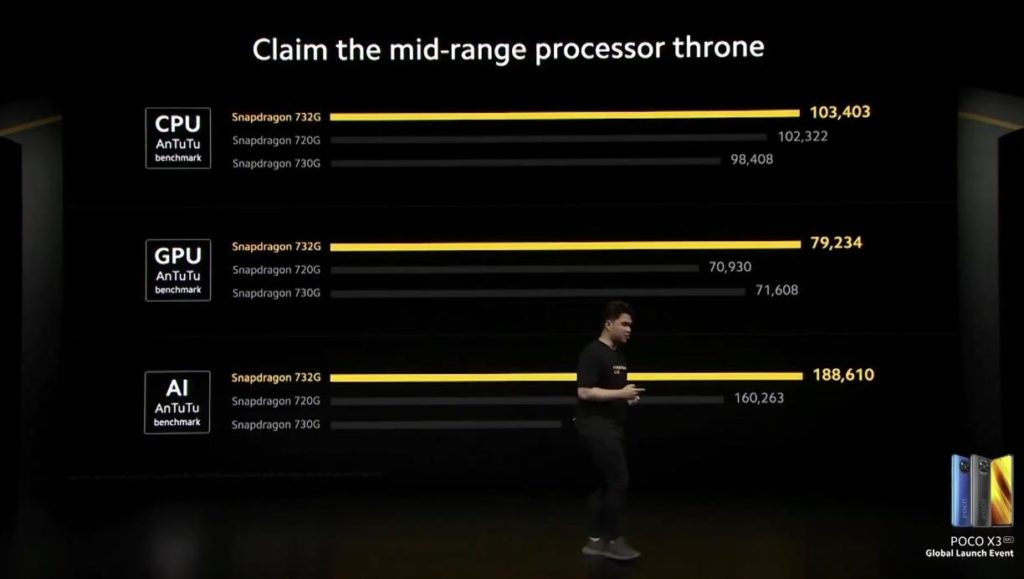
Overall
To be fair to Qualcomm, I am not saying the Qualcomm Snapdragon 732G is a bad chipset; it is one of the best 4G options you will have. However, if you want a mid-range 4G chipset, your options haven’t really improved in well over a year.
My big issue is with the marketing BS that both Qualcomm and Mediatek have been using recently with these incremental changes disguised as something brand new. I have become increasingly suspicious that a lot of these (for both QC and MT) are essentially custom orders from Xiaomi, and in some cases OPPO/Realme. No other phones have launched with the Snapdragon 768G other than the Redmi K30 5G Racing Edition. OPPO had the Dimensity 1000L and Xiaomi have the MediaTek Dimensity 820.
[Original post 1 September 2020]
[Updated 07/09/2020] Added Antutu benchmarks confirmed during the announcement.
I am James, a UK-based tech enthusiast and the Editor and Owner of Mighty Gadget, which I’ve proudly run since 2007. Passionate about all things technology, my expertise spans from computers and networking to mobile, wearables, and smart home devices.
As a fitness fanatic who loves running and cycling, I also have a keen interest in fitness-related technology, and I take every opportunity to cover this niche on my blog. My diverse interests allow me to bring a unique perspective to tech blogging, merging lifestyle, fitness, and the latest tech trends.
In my academic pursuits, I earned a BSc in Information Systems Design from UCLAN, before advancing my learning with a Master’s Degree in Computing. This advanced study also included Cisco CCNA accreditation, further demonstrating my commitment to understanding and staying ahead of the technology curve.
I’m proud to share that Vuelio has consistently ranked Mighty Gadget as one of the top technology blogs in the UK. With my dedication to technology and drive to share my insights, I aim to continue providing my readers with engaging and informative content.

